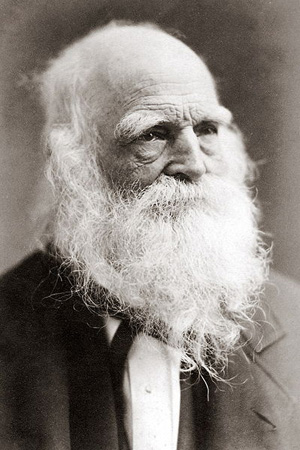A Song of Pitcairn's Island
William Cullen Bryant
Come take our boy, and we will go
Before our cabin door;
The winds shall bring us, as they blow,
The murmurs of the shore;
And we will kiss his young blue eyes,
And I will sing him, as he lies,
Songs that were made of yore:
I'll sing, in his delighted ear,
The island lays thou lov'st to hear.
And thou, while stammering I repeat,
Thy country's tongue shalt teach;
'Tis not so soft, but far more sweet
Than my own native speech:
For thou no other tongue didst know,
When, scarcely twenty moons ago,
Upon Tahete's beach,
Thou cam'st to woo me to be thine,
With many a speaking look and sign.
I knew thy meaning--thou didst praise
My eyes, my locks of jet;
Ah! well for me they won thy gaze,--
But thine were fairer yet!
I'm glad to see my infant wear
Thy soft blue eyes and sunny hair,
And when my sight is met
By his white brow and blooming cheek,
I feel a joy I cannot speak.
Come talk of Europe's maids with me,
Whose necks and cheeks, they tell,
Outshine the beauty of the sea,
White foam and crimson shell.
I'll shape like theirs my simple dress,
And bind like them each jetty tress,
A sight to please thee well:
And for my dusky brow will braid
A bonnet like an English maid.
Come, for the low sunlight calls,
We lose the pleasant hours;
'Tis lovelier than these cottage walls,--
That seat among the flowers.
And I will learn of thee a prayer,
To Him who gave a home so fair,
A lot so blest as ours--
The God who made, for thee and me,
This sweet lone isle amid the sea.
Pitcairn Island is the island in the Pacific where many of the mutineers from the British warship Bounty took refuge in 1790.
It is part of the Pitcairn Islands, a British Overseas Territory.
